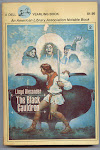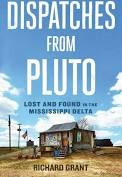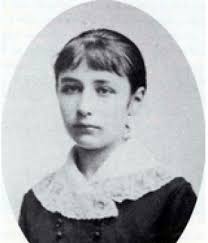 Jed came over on Wednesday, and we went to TKC Thursday to see the vascular doctor, Dr. Patterson, who said he will get with Dr. Stein and they'll decide whether to do an angiogram to see what's wrong with my painful leg.
Jed came over on Wednesday, and we went to TKC Thursday to see the vascular doctor, Dr. Patterson, who said he will get with Dr. Stein and they'll decide whether to do an angiogram to see what's wrong with my painful leg.Saturday, July 27, 2019
The Haunting of Hill House, by Shirley Jackson (1959)*****
 Jed came over on Wednesday, and we went to TKC Thursday to see the vascular doctor, Dr. Patterson, who said he will get with Dr. Stein and they'll decide whether to do an angiogram to see what's wrong with my painful leg.
Jed came over on Wednesday, and we went to TKC Thursday to see the vascular doctor, Dr. Patterson, who said he will get with Dr. Stein and they'll decide whether to do an angiogram to see what's wrong with my painful leg.
Posted by Joanne Cage --
Joanne Cage
at
9:04 AM
1 comments
![]()
Saturday, June 29, 2019
Murder on Shades Mountain, The Legal Lynching of Willie Peterson, by Melanie S. Morrison***
A black man accused of murdering two girls on Shades Mountain, a rich suburb of Birmingham, Alabama in the 1930's, keeps insisting that he's innocent, convincing a lot of people that it's true.
Posted by Joanne Cage --
Joanne Cage
at
3:19 PM
0
comments
![]()
Labels: books
Tuesday, June 25, 2019
Furious Hours, by Casey Ceb****
Posted by Joanne Cage --
Joanne Cage
at
6:01 PM
0
comments
![]()
Friday, June 14, 2019
Dispatches from Pluto, by Richard Grant***
The author and his girlfriend buy and move into an old house in the Mississippi delta. They have funny and sad experiences in the "drafty old house," and making friends with black and white neighbors and acquaintances. This was our book club selection for June.
Posted by Joanne Cage --
Joanne Cage
at
1:47 PM
0
comments
![]()
Tuesday, May 28, 2019
A Light in the Attic, by Shel Silverstein**** - A Review
Some Whatifs crawled into my ear
And pranced and partied all night long
And sang their same old Whatif song:
Whatif I flunk that test?
Whatif green hair grows on my chest?
Whatif nobody likes me?
Whatif a bolt of lightning strikes me?"
Review: This book was written and drawn by Shel Silverstein, a good writer and drawer This is a good book. I like it very much.
Posted by Joanne Cage --
Joanne Cage
at
9:55 PM
2
comments
![]()
Labels: books, Review, Silverstein
Wednesday, April 24, 2019
A Canticle for Leibowitz, by Walter M. Miller, Jr.****
A monk finds an ancient repository of writing and illustrations from 20th century America, and thus begin efforts to rebuild civilization.
After several hundred more years, the people have got the world back pretty much as it was before destruction, and have developed advanced machines and weapons. And so--you guessed it--nuclear wars break out and threaten to destroy the world. Fortunately, several extraterrestrial colonies have already been established on other planets, and a space ship is ready to take the current citizens to outer space just before the world is destroyed.
The text of this book is larded with Latin phrases, mostly from the Catholic ceremonies and readings. I remembered a few words of Latin and a few prayers and quotations.
I really enjoyed the book. The first section is rather amusing, until the major monk, Brother Francis, is shot through the head with an arrow.
Posted by Joanne Cage --
Joanne Cage
at
8:49 PM
3
comments
![]()
Labels: boxing, science fiction
Wednesday, April 10, 2019
Becoming, by Michelle Obama****
Today in the mail I received a brand new copy of A Canticle for Leibowits, (copyright 1959), as I sold my old copy back when I was selling on Amazon. I have received so many free books lately through Amazon and Amex, that I almost feel like a cheapskate. But I guess they are the results of all the books I bought and paid for, before I paid any attention to the information about "points"
An old book that I've read most of recently is Black Elk Speaks, by John G. Neihardt. I've never read this whole book, frankly because it is so sad to read. This time around, I wrote a poem, "Black Elk Speaks of the Death of Crazy Horse," which I entered in the National Federation of State Poetry Societies (NFSPS) 2019 Founders' Award contest. I also read it at our most recent poetry group meeting.
Also at the poetry group meeting, Ramey read a really wonderful poem about birds, which I think was new. And other members contributed good poems. It was good to see Spurgeon again; he never reads, but just listens.
"Just" reminded me of something that struck me while watching "Gunsmoke" on TV. I don't know what some of those old shows would have done without the words "just" and "well." Almost every sentence that either Matt Dillon or Doc Adams spoke started with "Well," and when they started saying "just," it seems they couldn't quit.
Lately I get a "ghost" on every photo that I post on the blog. It's a mystery.
Posted by Joanne Cage --
Joanne Cage
at
5:15 PM
1 comments
![]()
Labels: book club, books, ghosts, Gunsmoke, Michelle, Obama, poetry group, poets
Saturday, March 30, 2019
Where the Crawdads Sing, by Delia Owens*****
But this is about a novel, Where the Crawdads Sing, our book club's April selection. It's about one of the loneliest characters in all of fiction, a girl called Kya who lived in the swampy marshes of part of the North Carolina Atlantic coast. When she was a little girl, her mother and all her siblings abandoned her to the "care" of her brutal father, who died a couple of years later. That's all I'm going to write about the book now, except to repeat that it's a book about solitude and loneliness and how they can affect a human being--and to say that another good title for this book would be Firefly.
Posted by Joanne Cage --
Joanne Cage
at
7:16 PM
2
comments
![]()
Monday, March 11, 2019
House of Rose, by T.K. Thorne***
Posted by Joanne Cage --
Joanne Cage
at
1:03 AM
4
comments
![]()
Saturday, February 16, 2019
Camille Claudel: A Life, by Odile Ayral-Clause****
The famous French sculptor Auguste Rodin accepted Camille as his student, and soon fell in love with her, although he had another mistress whom he would not give up. Camille's strong personality eventually showed signs of mental illness, chiefly paranoia, a strong persecution complex. She broke with Rodin and became obsessed with the idea that he, and others, were stealing her works and plotting against her life.
Her family committed her to a French asylum in 1913, where, at the request of her mother, she was restricted from seeing or communicating with anyone outside the asylum for long periods. Rodin continued to have strong feelings for her the rest of his life, but in his old age he married his mistress Rose, and they honeymooned in an unheated government house. Both died of pneumonia within the first year of their marriage. When Camille died, possibly from malnutrition, in 1943, she was buried in the asylum's cemetery.
Ten years later, her brother Paul requested permission to move her remains to her home village of Villeneuve. The reply he received was that her burial place had been reclaimed for the needs of the Cemetery Department. The bones of all the interred individuals had been exhumed and transferred together to a communal grave. Camille never returned to her beloved Villeneuve. Of the communal grave, of her bones, there is no trace.
Friday, February 8, 2019
The Secret Garden, by Susan Patterson****
Yesterday I was "meditating" upon things that people have said that hurt my feelings. After going over (and over) a few of them, it suddenly occurred to me that I have thoughtlessly hurt several of my loved ones by exercising my big mouth. I went over the examples, cringing all the while, until I got tired of the subject.
Posted by Joanne Cage --
Joanne Cage
at
2:24 PM
1 comments
![]()
Labels: books, decorating, furniture
Monday, December 31, 2018
Oh My Stars, by Lorna Landvik***
Well, "So long, 2018." It has been a good year for me; I wish all my kin had a year as pain-free and relatively worry-free as I did.
Yesterday I went to church with my two sisters, and after church they took me out to lunch in recognition of my birthday (which was December 27th). Susan gave me a brand-new copy of Michelle Obama's book, Becoming, plus some goodies. Ramey and India had already given me several cards and presents, including three pairs of cute (and warm) winter socks.
One of my periodic wishes is for time to put away stuff and straighten up the house before the cleaning lady comes, which will be next Monday.
The only New Year's resolution I'm making is to keep up with the daily exercises that the Rehab people showed me. I always feel better after doing the exercises, and after I recover the ability to stand up, breathe, and walk around.
Posted by Joanne Cage --
Joanne Cage
at
11:27 PM
1 comments
![]()
Friday, December 28, 2018
Where the Sidewalk Ends: Poems and drawings by Shel Silverstein*****
*
I saw on Facebook a post by
President Obama, listing some
of the books he read in 2018.
One of his favorites was
Washington Black, which was
our book club selection for December.
Posted by Joanne Cage --
Joanne Cage
at
1:51 PM
1 comments
![]()
Labels: birthday, books, Christmas 2018
Saturday, December 1, 2018
Washington Black, by Esi Edugyan++++
The story is full of good things as well as tragedies. I enjoyed reading it.
Jed came over for Thanksgiving, and Susan had invited us to have Thanksgiving dinner with her, Jesse and Andy. As always, she served a fabulously delicious meal.
Posted by Joanne Cage --
Joanne Cage
at
7:45 PM
0
comments
![]()
Saturday, November 17, 2018
The Life and Adventures of Nat Love****
 The book I'm reading now is The Life and Adventures of Nat Love, the autobiography of a former slave. After the War, Nat's father rented land from the "old Master" and the family started farming and raising tobacco. But after a year or so, Nat's father and older sister died, leaving him a young boy as head of the rest of the family. At age 15 he took off up the old Chisholm Trail to become a cowboy, Indian fighter, rodeo champion, and towards the end a Pullman conductor.
The book I'm reading now is The Life and Adventures of Nat Love, the autobiography of a former slave. After the War, Nat's father rented land from the "old Master" and the family started farming and raising tobacco. But after a year or so, Nat's father and older sister died, leaving him a young boy as head of the rest of the family. At age 15 he took off up the old Chisholm Trail to become a cowboy, Indian fighter, rodeo champion, and towards the end a Pullman conductor.
Posted by Joanne Cage --
Joanne Cage
at
7:46 PM
4
comments
![]()
Labels: books
Sunday, November 11, 2018
Circe, by Madeline Miller****
Because she tried to help Prometheus when Helios had him flayed and bound to a rocky crag, Helios burned her to a crisp, but being immortal, eventually she healed and was restored to her former self. The next time she displeased Helios, he exiled her to a deserted island, where she lived for many thousand years and had lots of lovers and adventures.
She cultivated many plants for her potions, and some of the plants, fungi, etc., are known today for their healing properties. Circe healed a lot of people as well as turning others into pigs and monsters. Her healing spells and medicines are called pharma in the book, which reminded me of something the evangelist Jack Van Impe said once. He said that in the Bible, where it says that in the last days a lot of people were doomed because they wouldn't give up their sorceries, that the original Greek word was pharma. Van Impe said that this indicated that modern people wouldn't stop taking drugs, which sounds reasonable. Jack Van Impe is still living, a very smart man in his eighties. He had memorized some thousands of Bible verses, though Wikipedia says that various illnesses and old age have made him forget some and have to struggle to remember some others.
In an addendum the author gives a list of the characters and tells who they are and their places in the Trojan wars. A lot of these gods and goddesses have counterparts in Roman mythology. I believe Chronos, Circe's grandfather, was the equivalent of Saturn in Roman myths. Hermes, the messenger, was Mercury, and the Greek Herakles was Hercules in Rome.
Very interesting book.
Posted by Joanne Cage --
Joanne Cage
at
5:52 PM
0
comments
![]()
Labels: books
Monday, November 5, 2018
The Humans, by Matt Haig****
 This is the selection for our next book club meeting. I read it over the weekend. It's sort of a tear-jerker, which is to say I gave up and started shedding tears on page 100. The extraterrestrial messed up a marriage and shirked his mission, and the old Riemann theory got put on the back of the stove without a solution, again. The E.T.'s teen-aged "son" is an appealing character and worth saving from falling off the roof. All in all, the book is very good reading. The other Matt Haig book we've read was How to Stop Time, also a good book.
This is the selection for our next book club meeting. I read it over the weekend. It's sort of a tear-jerker, which is to say I gave up and started shedding tears on page 100. The extraterrestrial messed up a marriage and shirked his mission, and the old Riemann theory got put on the back of the stove without a solution, again. The E.T.'s teen-aged "son" is an appealing character and worth saving from falling off the roof. All in all, the book is very good reading. The other Matt Haig book we've read was How to Stop Time, also a good book. Tonight is supposed to be dark and stormy.
Jed spent the weekend in New York, visiting friends.
Tomorrow is mid-term election day. It's almost scary, thinking what if the current administration wins again.
Posted by Joanne Cage --
Joanne Cage
at
2:47 PM
0
comments
![]()
Labels: books
Friday, November 2, 2018
Frankenstein; or The Modern Prometheus,by Mary Wollstonecraft (Godwin) Shelley****
I had never read Mary Shelley's Frankenstein. It's very good, more like science fiction than horror. Shelley wrote this book when she was nineteen years old, and the grammar, syntax and story development are near perfect.
Posted by Joanne Cage --
Joanne Cage
at
10:41 AM
0
comments
![]()
Labels: books
Sunday, October 7, 2018
I'm Thinking of Ending Things, by Iain Reid***
By the end of the book, I had vaguely figured out what was going on. It's a painful book, good writing.
Posted by Joanne Cage --
Joanne Cage
at
11:13 PM
2
comments
![]()
Labels: books
Tuesday, September 11, 2018
The Fault in Our Stars, by John Green****
Jed drove me to the Whitaker Clinic to my appointment with Dr. Gruman. We discussed my changing to Dr. Russell at UAB Leeds, and Dr. G. agreed it was a good idea. We exchanged "I'll miss you"s.
Posted by Joanne Cage --
Joanne Cage
at
11:58 PM
2
comments
![]()
Labels: books
Thursday, September 6, 2018
More of the Same, With a Little Twist
Spent two nights in the urgent care clinic. By the time I got there, the breathing problem had cleared up, but Dr. Gruman wanted them to run all my breathing, heart, etc. tests over again, which they did. They also signed me up for rehab and home health care and I don't know what all. Then they put me back on all the former meds, including an inhaler which consists of a little plastic case of powder to be inhaled, which didn't help before, but maybe it will this time. I know it sounds ungrateful, but that's probably because in a way I am. I'm sort of glad I went, though. This time I was a perfect patient. I didn't say one cross, sarcastic or profane word to anybody. Man, I was sweet!
Posted by Joanne Cage --
Joanne Cage
at
8:24 PM
3
comments
![]()
Wednesday, September 5, 2018
More
Woke up with shortness of breath, so I guess I'll go to the ER when the doctor calls me back.
Still have back and rib pain from the fall.
Posted by Joanne Cage --
Joanne Cage
at
9:43 AM
1 comments
![]()
Friday, August 24, 2018
Random Harvest (1941), by James Hilton*****
 |
| James Hilton |
trance--even those of us who can see the danger ahead can do nothing to avert it--like the dream in which you drive a car towards a precipice and your foot is over the brake but you have no physical power to press down."'
Posted by Joanne Cage --
Joanne Cage
at
5:26 PM
1 comments
![]()
Labels: books
Thursday, August 23, 2018
How much more?
Tuesday night I fell and bumped my back. Prayed the Jesus Prayer till daylight, then spent all day yesterday being driven by my sisters from one clinic to another, as I couldn't get in touch with my doctor to ask him what I should do. In severe pain most of the time. The final opinion was that I may or may not have a small fracture of a rib or something, and I should take Tylenol. Don't know if I should continue all those other medications on top of the Tylenol, but I'm doing so. For the time being, I'm tired of trying to ask medical opinions.
Thanks to the Tylenol I did sleep several hours this morning.
Marlowe's Mephistopheles may have been wrong, but it sure feels like Purgatory.
Posted by Joanne Cage --
Joanne Cage
at
1:50 PM
3
comments
![]()
Saturday, August 18, 2018
Vachel Lindsay, Poet
"THEN I SAW THE CONGO CREEPING THROUGH THE BLACK,
CUTTING THROUGH THE JUNGLE WITH A GOLDEN TRACK.. . .
"Boomlay, boomlay, boomlay, BOOM!
A roaring, epic, rag-time tune
From the mouth of the Congo
To the Mountains of the Moon.
Death is the Elephant,
Torch-eyed and horrible . . .
"Mumbo-Jumbo will hoo-doo you,
Mumbo-Jumbo will hoo-doo you,
Mumbo-Jumbo will hoo-doo you."
Sometimes I get so impatient with the spacing, I just give up.
Posted by Joanne Cage --
Joanne Cage
at
12:12 PM
4
comments
![]()
Thursday, August 16, 2018
The Dawn Watch: Joseph Conrad in a Global World, by Maya Jasanoff****
"Tumbling down the rapids from Kinshasa to the Atlantic, the Congo River bursts out of Africa with such force that you can see its sediment churning into the sea for hundred of miles offshore, tinting the blue ocean brown. That was the first violence Konrad would have witnessed as he approached the Congo Free State on the Ville de Maceto in June 1890." - TDW p. 186
Joseph Conrad was born in 1857 and died in 1924. He was born Josef Teodor Konrad Korzeniowski, in Poland which was part of the Russian empire. Early in his adulthood he went to live in England, became a naturalized British citizen, and considered himself an English writer. He worked as a sailor, holding various posts, for twenty years, then quit to write full-time. He married a Miss Jessie George; the book says she was homely, but her photograph is lovely.
Conrad's major novels were written after his retirement to England. They included Almayer's Folly, Nostromo, Lord Jim, and Heart of Darkness. His only "best-seller" during his lifetime was Lord Jim, which was immensely popular soon after its publication.
One Saturday morning in August 1924, Conrad went to see a house that he was thinking about moving to. He had a bout of chest pain during the trip. He went to bed with the doctor's diagnosis of indigestion. His breathing became difficult, and he was placed on oxygen. Next day he felt well enough to get up and sit in his chair; Jessie was laid up in the next room with injured knees from an earlier accident, and she and Conrad called to each other from their rooms. Then "everyone in the house heard a thump. Conrad had fallen dead from his chair...." He was buried in "the kind Kentish earth." TDW
A quotation by the author regarding Heart of Darkness: "Anyone could be savage. Everywhere could go dark."
Lord Jim
Posted by Joanne Cage --
Joanne Cage
at
2:03 PM
2
comments
![]()
Tuesday, August 7, 2018
Turtles All the Way Down, by John Green****
This is a wonderful book. It's strange that the most recent two books I've read were both about a disappearing person and an obsessive searcher who solves the mystery.
Jed came over yesterday. He brought me the John Green book, and I read it last night and today. Yesterday we drove to Moody and explored a large, very nice retirement community. I've been thinking about whether I should give up my house full of junk and stairs in favor of an orderly and patterned residence for my late years. So far, the answer is "no," but who knows what I'll think tomorrow.
Posted by Joanne Cage --
Joanne Cage
at
4:02 PM
2
comments
![]()
Labels: books
Leaving Time, by Jodi Picoult****
"Ghoulies and ghosties and ill-tempered beasties, and things that go bump in the night." Jenna is a teen-aged girl whose mother disappeared ten years earlier, and Jenna keeps searching for her. She is aided in her search by two people she meets, Serenity who has been a real working psychic but thinks she has lost her abilities, and Virgil who worked with the police when Jenna's mother disappeared. Jenna's mother, Alice, was a professional scientist and writer, working with African and Asian elephants, and some of the pachyderms are real characters in the story.
This is our book for the August book club meeting. I think this it's a very good choice. I've read two other books by Picoult, Nineteen Minutes and My Sister's Keeper. I think it's impossible to say which is the best of the three.
Posted by Joanne Cage --
Joanne Cage
at
3:26 PM
1 comments
![]()
Labels: books
Friday, June 29, 2018
Outside the Magic Circle****
Posted by Joanne Cage --
Joanne Cage
at
12:14 PM
4
comments
![]()
Tuesday, May 29, 2018
Three Books
When I finished that one, I took up The Hobbit where I had left off. All day I had not turned on the television or the computer. In the late afternoon I tried to get online and couldn't. The I found that the TV and the phones were out. Looking out the front door through the rain, I saw a big limb from the ivy-covered tree lying on the ground, and the cable line lying under it. So I went up to Ramey's house and called Charter, and they came this morning and fixed it.
I can't get rid of the spaces below.
Posted by Joanne Cage --
Joanne Cage
at
5:28 PM
1 comments
![]()
Labels: books
Thursday, May 24, 2018
Late Arrival
I can already tell that it's wonderful, with illustrations of Conrad's family and travels every few pages. I flipped through and read a couple of pages telling about his marriage. But I didn't really start reading from the beginning. I need to finish The Hobbit before I begin another book.
This is the first book I've been excited about in months. It includes parts about Stanley and Livingstone, and about King Leopold's atrocities mentioned in Vachel Lindsay's poem. Conrad lived from 1857 to 1924.
Posted by Joanne Cage --
Joanne Cage
at
8:28 PM
3
comments
![]()
Labels: books

































